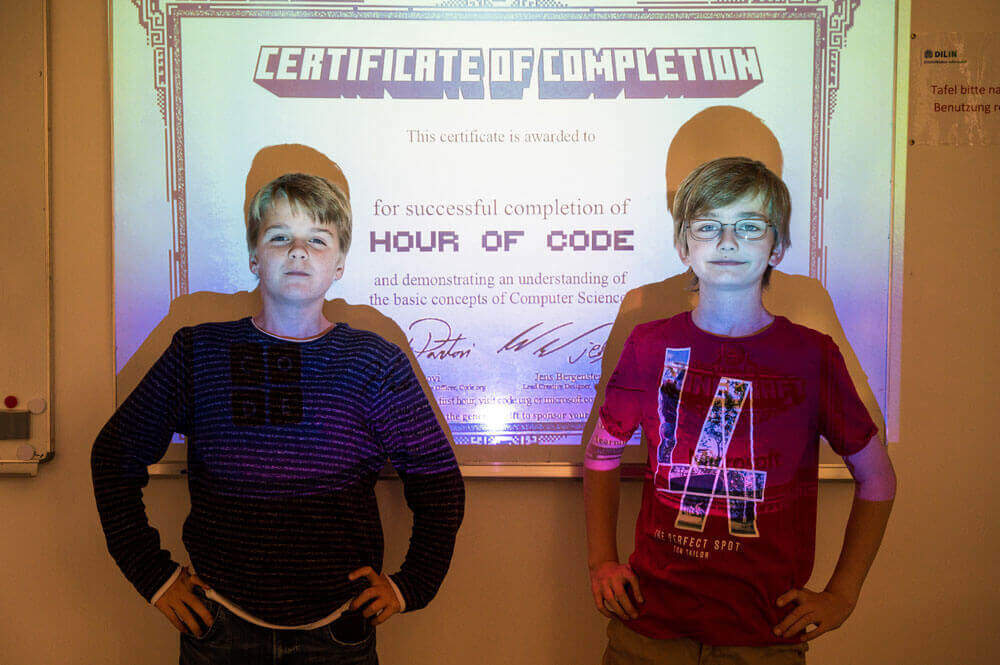News Archive

For the third time, students of computer science at Saarland University are taking part in the international “Hour of Code” campaign, which traditionally takes place every year in the second week of December. In order to enable children to try out programming for a whole hour, this year the students visit six schools in Saarland and offer an introduction to programming to a total of 13 classes. During this introduction, the pupils will be motivated by characters from the computer game [...]

In the film “Transcendence” Johnny Depp plays a highly respected scientist whose consciousness is saved on a supercomputer after an attack. Uploaded onto the Internet, he drastically changes the world. The “Kino im Filmhaus” will be showing the 2014 science thriller on Thursday, November 14, starting at 6:30 pm, in its original language and with subtitles. Professor Jörg Hoffmann of Saarland University will comment on the film afterwards. Admission is free. It is the last film in [...]

Gamification is the use of typical elements of a game in a context other than that of a computer game. The application of this concept is as colorful as its definition is dry. The same applies to research on this subject. Both take place in the Saarland. This is why the IT theme evening on November 7 introduced top regional thinkers behind it. 69 people accepted the invitation to the Visualization Center of the German Research Institute for Artificial Intelligence (DFKI) on the Saarland Informatics Campus.

As part of the Federal Ministry of Education and Research’s Science Year 2019 – Artificial Intelligence and the project “#KI50: Artificial Intelligence in Germany – Yesterday, Today, Tomorrow”, the Gesellschaft für Informatik (GI) is awarding prizes to ten scientific talents in the field of artificial intelligence. The deciding factor for the victory is a public online vote, which runs until November 17 of this year.

“How I took over a company with 130 employees and learned to love data retention”, explains Julian Backes, Managing Director of the software house “DIaLOGIKa”, next Wednesday, 6.11.2019, from 16:15, in lecture hall 1 (building E1.3).
4647484950 ...
70»
